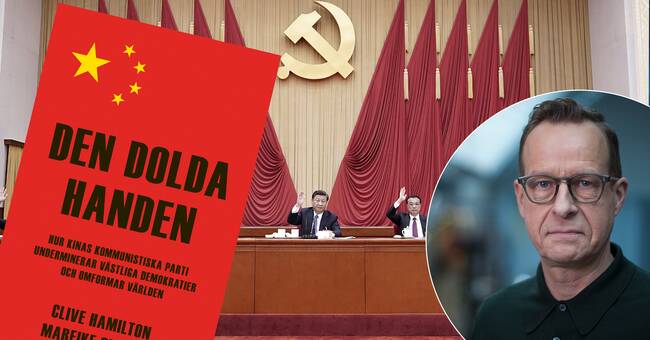In Sweden, we have seen China's ambassador openly threaten reprisals against investigative journalists.
When I read his comments about the imprisonment of the Swedish publisher Gui Minhai ("It is an internal affair for China. It is Chinese law that applies."), I sometimes thought a little sarcastically that the Chinese Communist Party demands respect for its sovereign right to persecute regime critics .
Now I learn
in this fact-packed, well-structured book that what I thought was a dull irony fits quite well with the regime's openly declared demands on the world, and that's not fun.
Already Deng Xiaoping in the 1980s introduced capitalism into communism - which lifted hundreds of millions of people out of poverty, made the country an economic superpower and vigorously showed that capitalism does not have to go hand in hand with democracy (as Western liberals have always argued) but can thrives even under one-party rule without freedom of opinion.
This is called in the party's sometimes quite funny new language "socialism with Chinese characteristics".
Since Xi Jinping
came to power in 2013, he has developed his own step on the rocket of the Chinese Communist Party: "socialism with Chinese characteristics for a new era".
What is new is expansionism;
the idea of using all this economic power to increase its influence.
The new era is the one when China is the world's dominant nation.
In Mao's time, the revolution would grow by conquering the world's poor masses.
In Xi's time, the revolution will grow by sucking global capitalism into its power grid.
The Chinese regime's
strongest defender in the Western world is the business community.
The authors can present dictatorship-superficial quotes from business-related American think tanks that sound astonishingly similar to their Chinese friend Jan Myrdal in the 80s: the Communist Party's legitimacy in China "stems from prosperity and competence", writes an analyst, for example, when there is clearly no democratic legitimacy. find.
Xi Jinping also believes that the supreme human right is the "right to development", ie the right to get better financially and materially;
that right beats things like freedom of speech and opinion.
It is also astonishing that this country, with its extreme, party-led internet censorship, can hold its annual World Internet Conference and include both Apple CEO Tim Cook and Google CEO Sundar Pichai among the guests.
At a conference that China hosted on Microsoft's "campus" in the US under the same name, you could also see Bill Gates, Amazon's Jeff Bezos and Facebook's Mark Zuckerberg smiling shaking paws with Xi Jinping.
I learn a lot from The Hidden Hand, the most important are the basic features:
China's Communist Party does
not intend to allow the country to develop towards democracy and respect for human rights and freedoms.
On the contrary, it demands that the world respect the social order the party has built up in China.
And the means of power to drive the adaptation of the outside world is the country's enormous economic power.

